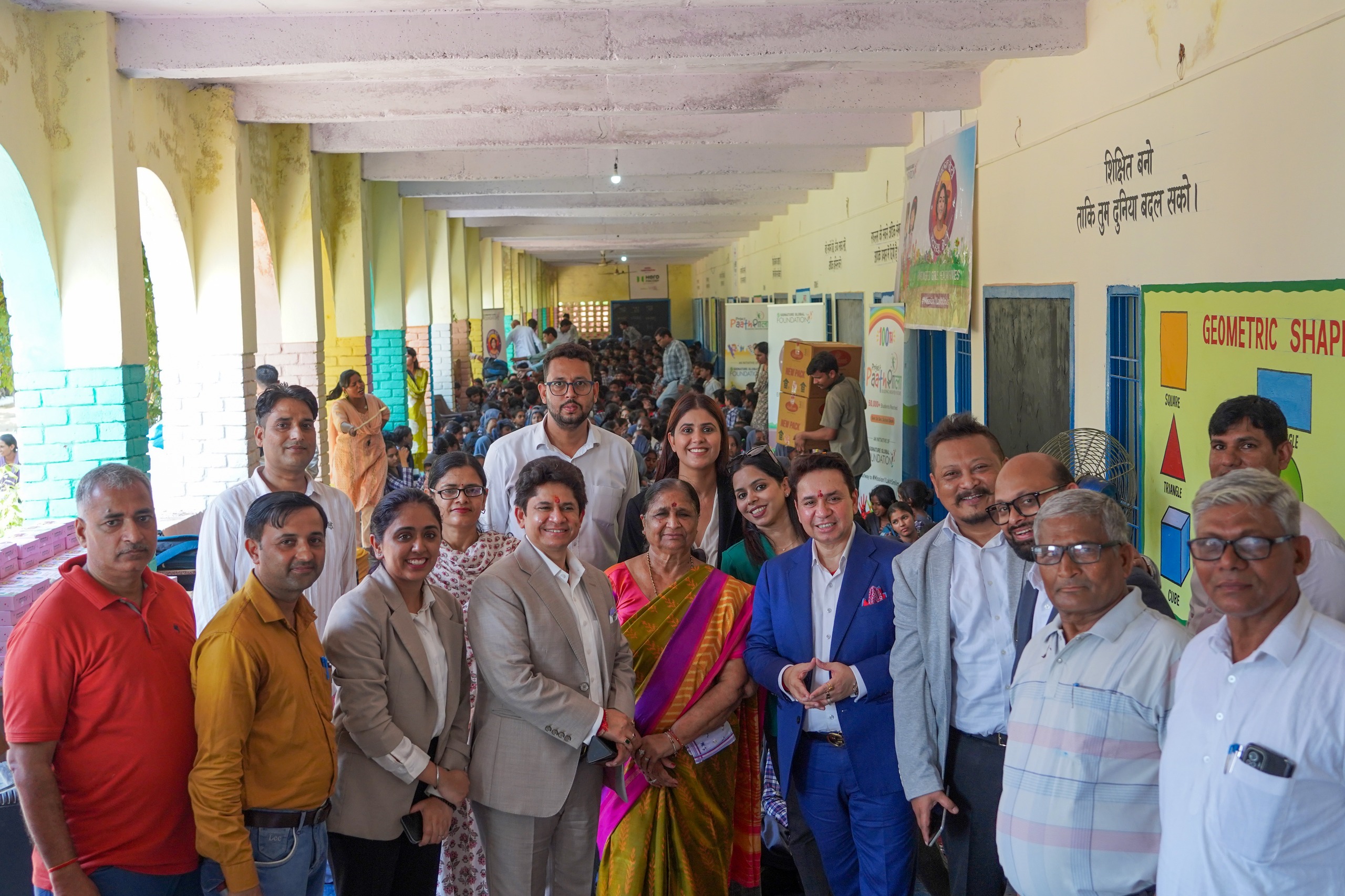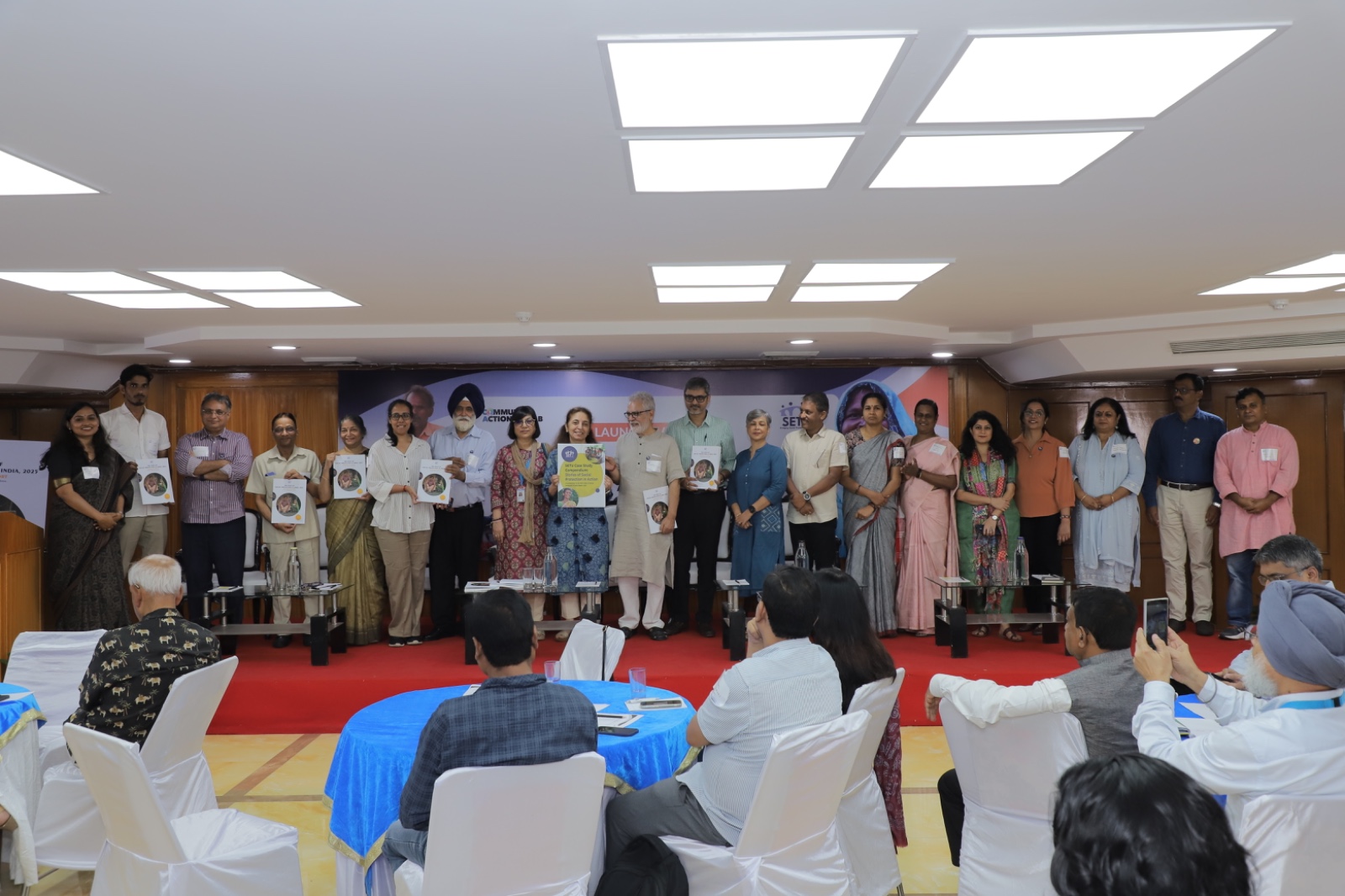Subscribe our Weekly Newsletter
ToR - Comprehensive Study for Developing Early Childhood Development (ECD) as a Flagship Program

Organization: Karuna-Shechen
Apply By: 31 Oct 2025
Terms of Reference
Comprehensive Study for Developing Early Childhood Development (ECD) as a Flagship Program
1. Background
About Karuna-Shechen
Karuna-Shechen, is a non-governmental organization that acts and advocates for a more altruistic world. The organization contributes to breaking the cycle of intense poverty, strengthening resilience, and developing the full potential of poor, vulnerable, or distressed populations through a local, community-driven, and holistic approach interconnecting health and hygiene, education, food security, economic development, and environment. Programs are implemented in India and Nepal.
Karuna-Shechen has been actively engaged in Early Childhood Development (ECD) work in both India and Nepal for over a decade. With interventions rooted in the philosophy of holistic, joyful learning for young children, our efforts have focused on play-based pedagogy, community partnerships, and integration with national frameworks such as Integrated Child Development Scheme (India) and local government programs (Nepal).
2. Rationale and Purpose of the study
As Karuna-Shechen shapes its strategic direction for the next five years, there is a critical need to identify and strengthen flagship programs that demonstrate leadership, excellence, and long-term impact. Given our substantial experience and current implementation in ECD across both countries, this domain presents the strongest opportunity to achieve excellence and establish Karuna-Shechen as a leading organization in ECD globally.
The study will provide evidence-based recommendations to transform our existing ECD efforts into a flagship program that can serve as a model for other organizations and demonstrate measurable impact on child development outcomes.
Purpose:
To conduct a comprehensive stocktaking and strategic analysis of Karuna-Shechen’s ECD programs in India and Nepal. The findings will inform a SMART roadmap to elevate ECD as a flagship program over the next 5 years, positioning Karuna-Shechen as a leader in community-driven early childhood interventions.
3. Objective
Primary Objective: To develop a SMART (Specific, Measurable, Achievable, Relevant, Time-bound) roadmap for positioning ECD as Karuna-Shechen's flagship program, based on comprehensive assessment of current initiatives, stakeholder perspectives, and field realities in both Nepal and India.
Secondary Objectives:
- Assess current program effectiveness and impact
- Identify gaps and opportunities for improvement
- Benchmark against excellence standards in ECD
- Develop strategic recommendations for scaling and sustainability.
Current Status of ECD Implementation
|
India Operations: |
Nepal Operations: |
|
Timeline: ECD project began as a pilot in January 2014 with 4 Anganwadi Centres (AWCs) and operates under the ICDS program of government. |
Timeline: Active since 2018 under integrated development approach and operates with the federal government structure. |
|
Evolution: Expanded through phases reaching 100 AWCs by September 2018, strategically focusing on 137 high-performing centers in January 2025
|
Evolution: Initiated in Sindhuli district with 15 schools in 2021 and gradually expanded to 2 other districts Dhading and Kapilvastu reaching in total 86 schools / community ECD centres in 2023. |
|
Integration: ECD approach works within government ICDS framework, aligning with National Education Policy 2020 and National Curriculum Framework for Foundational Stage 2022.
|
Integration: Contributes to National ECD strategic plan 2020-30 and School Education Sector Plan 2022-2032. The ECD project focuses on preparing young children for school by strengthening early learning, while also taking a holistic approach that integrates health, nutrition, and food security. Through collaboration with local government and communities.
|
|
Approach: Integrated approach which combines both Center-based and community-based interventions focusing on play-based learning, including materials support for play based learning and orientation of ICDS ground level workers.
|
Approach: Integrated approach that combines early learning with health, nutrition, and food security, while engaging families, building local capacity, and fostering multi-sector collaboration for children’s holistic development and school readiness. |
|
Current Scale: Operating in 150 AWCs in 2 districts Gaya and Nawada in Bihar and 1 district of East Singhbhum in Jharkhand. |
Current Scale: Operating currently in 86 schools (as of 2025) in 2 districts Dhading and Kapilvastu (4 local level or rural municipality) in Nepal |
4. Scope of Work
The consultant/agency will undertake the following activities across both Nepal and India operations:
4.1 Current Program Assessment
- Program Mapping: Comprehensive documentation of existing ECD activities, target populations (0-3 and 3-6 /3-8 age groups), geographic coverage, and delivery models
- Stakeholder Analysis: Map roles and relationships of key implementers including Aaganwari workers , Community Health Mobilisers, Program Coordinators, community volunteers, and government partners
- Integration Review: Assess how ECD integrates with other Karuna programs (Babua School, Non formal Education, health awareness, adult education) a
4.2 Policy and Framework Analysis
- India: Analyze alignment with ICDS framework, NEP 2020, National Curriculum Framework-Foundational Stage 2022, and state-level policies.
- Nepal: Review compliance with federal restructuring requirements and local government ECD initiatives.
- Cross-country Learning: Identify opportunities for knowledge sharing between operations.
4.3 Program Quality and Impact Assessment
- Theory of Change Evaluation: Review current program logic and assumptions
- Outcome Measurement: Assess existing M&E systems and child development outcomes
- Quality Standards: Evaluate program quality against national and international ECD standards
- Challenges Analysis: Document implementation challenges including personnel issues, sustainability concerns, and scaling difficulties
4.4 Stakeholder Engagement
- Internal Consultations: Key informant interviews with country teams, program staff, and leadership
- External Stakeholders: Engage government partners, community leaders, and beneficiary families
- Beneficiary Perspectives: Capture voices of children, parents, and caregivers
4.5 Benchmarking and Learning
- Excellence Models: Identify and study leading ECD programs regionally and globally
- Innovation Opportunities: Explore emerging practices and technologies in ECD
- Partnership Potential: Assess opportunities for strategic partnerships
5. Key Research Questions which the final document should include:
Program Effectiveness
- What evidence exists of positive child development outcomes from current ECD programs?
- How effectively do programs reach the most vulnerable children and families?
- What are the key factors contributing to program success or challenges?
Excellence Roadmap
- What constitutes "excellence" in ECD programming within Karuna's operational contexts?
- Which program components show greatest potential for scaling and replication?
- How can programs achieve greater integration across Karuna's thematic areas?
Strategic Positioning
- What would distinguish Karuna-Shechen as a leader in ECD globally?
- How can programs demonstrate measurable impact on child development outcomes?
- What innovations could position Karuna at the forefront of ECD practice?
6. Methodology
The consultant/agency shall employ a mixed-methods approach including:
6.1 Desk Review
- Analysis of program documents, reports, and M&E data.
- Review of national ECD policies and frameworks
- Literature review of ECD best practices and innovations
6.2 Field Research
- India: Site visits to selected AWCs from all districts
- Nepal: Field visits to ECD program locations (to be determined with Nepal team)
- Observation of program activities and interactions
6.3 Stakeholder Consultations
- Key informant interviews with program staff at all levels
- Focus group discussions with beneficiaries and community members
- Consultations with government partners and other stakeholders
6.4 Participatory Methods
- Community mapping exercises
- Participatory evaluation sessions with staff and beneficiaries
- Stakeholder workshops for validation and input
7. Expected Deliverables
|
Particulars |
Timeline |
Details |
|
7.1 Inception Report |
Week 2
|
|
|
7.2 Country Assessment Reports |
Week 6
|
|
|
7.3 Benchmarking Report |
Week 8
|
|
|
7.4 Final Strategic Report |
(Week 10) |
|
|
7.5 Presentation and Validation |
Week 11 |
|
8. Timeline
Total Duration: 12 weeks
|
Phase |
Activities |
Timeline |
|
Inception |
Literature review, tool development, stakeholder mapping |
Weeks 1-2 |
|
Data Collection |
Field visits, interviews, FGDs in both countries |
Weeks 3-7 |
|
Analysis |
Data analysis, benchmarking, report writing |
Weeks 8-9 |
|
Reporting |
Draft reports, stakeholder feedback |
Weeks 10-11 |
|
Finalization |
Final report, presentation, validation |
Week 12 |
9. Team Coordination and Reporting
Reporting Structure:
- Primary contact: International Programs Director
- Country coordination: Nepal and India team representatives
- Regular check-ins: Bi-weekly progress meetings including all representatives
- Advisory support: Access to program staff and documentation
Communication:
- Weekly progress updates
- Immediate flagging of any challenges or changes
- Collaborative approach with country teams throughout
10. Consultant/agency Qualifications
Essential Requirements:
- Experience in ECD program design, implementation, and evaluation
- Proven track record in developing strategic frameworks and flagship programs
- Strong understanding of community-based development approaches
- Experience working in South Asian contexts (Nepal/India preferred)
- Familiarity with government ECD policies and frameworks in the region
Preferred Experience:
- Experience with integrated development programming
- Knowledge of Montessori, play-based learning, or alternative pedagogical approaches
- Previous work with INGOs or similar organizations
- Demonstrated ability to facilitate participatory processes
- Multilingual capabilities (Hindi, Nepali, or local languages advantageous)
11. Budget and Resources
Consultant/agency Fees: To be provided by Consultant/Agency
Included Expenses in proposal:
- Travel costs for field visits in both countries
- Accommodation and daily allowances during field work
- Translation services if required
- Communication and technology costs
- Stakeholder workshop expenses
Karuna-Shechen Support:
- Access to all program documentation and data
- Coordination support from country teams
- Facilitation of stakeholder meetings
- Logistics support for field visits
12. Success Criteria
The study will be considered successful if it delivers:
- Comprehensive Assessment: Clear understanding of current ECD program strengths, challenges, and opportunities
- SMART Pathway: Actionable roadmap with specific milestones, timelines, and resource requirements
- Evidence-Based Recommendations: Proposals grounded in field realities and stakeholder input
- Excellence Framework: Clear definition of what constitutes excellence in ECD for Karuna-Shechen
- Implementation Readiness: Practical guidance for immediate next steps and long-term strategic direction
13. Application process: Interested agencies /consultants are invited to apply with their Technical and Financial Proposal to the following emails: hr.india@karuna-shechen.org with Copy to nepal@karuna-shechen.org
Last date of application: 31st Oct 2025.
All applicants (agencies and consultants) must be compliant with FCRA rules if they are registered/applying from India and the similar laws applicable for agencies /consultants applying from Nepal.
14. Selection Criteria:
|
Sl. No |
Evaluation Criteria |
Weightage |
|
1 |
Technical Proposal |
40% |
|
2 |
Financial Proposal |
40% |
|
3 |
Prior Experience |
20% |
Karuna-Shechen reserves the right to select suitable agency/consultant for this assignment.
Latest Online Store
Latest Grants
Latest News
© Renalysis Consultants Pvt Ltd

























